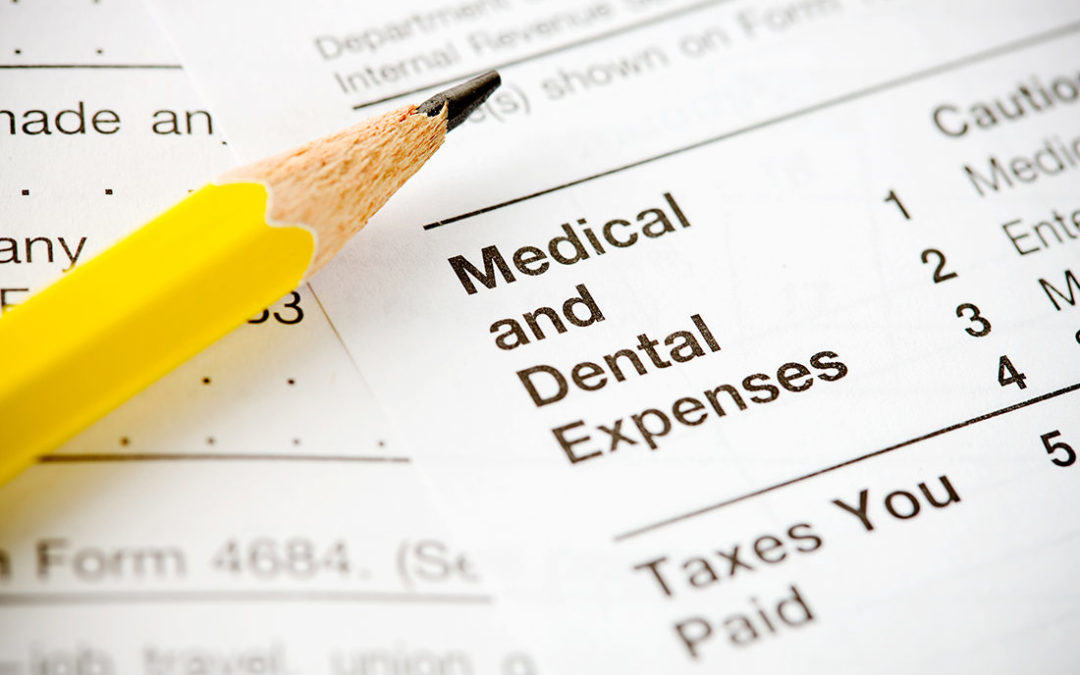Medical expenses that aren’t reimbursable by insurance or paid through a tax-advantaged account (such as a Health Savings Account or Flexible Spending Account) may be deductible — but generally only to the extent that they exceed 10% of your adjusted gross income. However, taxpayers age 65 and older can enjoy a 7.5% floor through 2016. You must be able to itemize deductions to deduct medical expenses.
Deductible medical expenses can include health insurance premiums, certain long-term care premiums, fees paid to doctors and dentists, fees paid to some nontraditional medical practitioners, transportation costs, therapists and nurses, prescription drugs and insulin, smoking-cessation programs, weight-loss programs, and payments for eyeglasses, hearing aids, and dental work. You may deduct your medical expenses and the medical expenses of your dependents. Remember that you cannot deduct medical premiums if paid on a pre-tax basis, such as through an employer plan.
By “bunching” non-urgent medical procedures and other controllable expenses into alternating years, you may increase your ability to exceed the applicable floor. Controllable expenses might include prescription drugs, eyeglasses and contact lenses, hearing aids, dental work, and qualifying elective surgery.
You can only deduct expenses that are paid within the year. If you are paying by check, then you will need a receipt for payment showing the date paid or proof of mailing if near year-end. Online payments need to post in the year of the deduction. If you are paying by credit card, you will want your credit card charge in the year of deduction, you do not have to pay your credit card balance to deduct medical expenses charged.
If it’s looking like you’re close to exceeding the floor in 2015, consider accelerating controllable expenses into this year. But if you’re far from exceeding it, to the extent possible (without harming your or your family’s health), you might want to put off medical expenses until next year, in case you have enough expenses in 2016 to exceed the floor.
If you have an opportunity at the end of this year to bunch medical expenses in 2015 or hold over expenses to 2016, then you should consider your expected income for each year. A lower income year will have a lower threshold for deducting medical expenses.
For more information on how to bunch deductions or exactly what expenses are deductible, please contact us.
